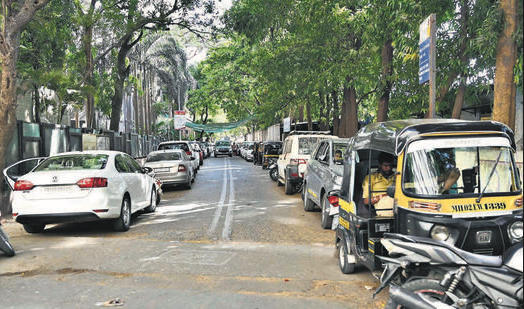The Maharashtra government is preparing to introduce a policy that will make it mandatory for anyone buying a new car to show proof of a parking space before their vehicle can be registered. This bold move, announced by Transport Minister Pratap Sarnaik, aims to tackle the severe parking and traffic congestion problems plaguing Mumbai and other major cities in the state.
The new policy, which is currently being drafted, will require prospective car buyers to obtain a certificate from the local municipal authority confirming that they have access to a designated parking spot. This parking space can be either in a private building, a housing society, or a public parking lot. Without this certificate, the Regional Transport Office (RTO) will not register the new vehicle.
Minister Sarnaik explained that the main reason behind this policy is the unchecked growth in the number of vehicles, especially in densely populated cities like Mumbai. Many people, even those living in small one-bedroom flats, are purchasing multiple cars and parking them on public roads due to the lack of private parking. This has led to widespread illegal parking, traffic jams, and even blocked access for emergency vehicles such as ambulances and fire brigades.
The government is also aware of the challenges faced by people living in smaller homes or in slum redevelopment areas, where personal parking is not always possible. For such cases, the policy will allow buyers to secure a spot in public parking facilities and obtain a clearance certificate from the municipal body. The authorities have assured that the policy will not discriminate against economically weaker sections, as arrangements can be made for them in public parking lots.
To support this initiative, the government is planning to construct more parking plazas, including facilities beneath recreational spaces and parks. Developers of new residential buildings will also be required to provide adequate parking as per the development rules. The Brihanmumbai Municipal Corporation (BMC) will play a key role in issuing the necessary certificates and overseeing the implementation of the policy.
The policy is part of a wider effort to improve urban mobility and reduce dependence on private vehicles. The state is also investing in public transport, such as metro rail and even exploring futuristic options like pod taxis, to provide alternatives to car ownership.
Applicable on New Vehicle Registrations Only
For now, the rule will apply only to new vehicle registrations. However, there are plans to extend it to older vehicles in the future, especially when they come up for fitness certificate renewals after 15 years. Two-wheelers and three-wheelers are not covered under this policy at present.
Experts say that while the policy is ambitious and could help ease congestion, its success will depend on effective implementation and coordination between multiple government departments. There are concerns about the availability of enough parking spaces, especially in older areas and slums, and the risk of corruption in issuing certificates.
Despite these challenges, the Maharashtra government is determined to move ahead, arguing that such steps are necessary to prevent the state’s roads from being “choked” by an ever-increasing number of vehicles. Discussions with stakeholders are ongoing, and the final policy is expected to be announced after further consultations and legal preparations.


